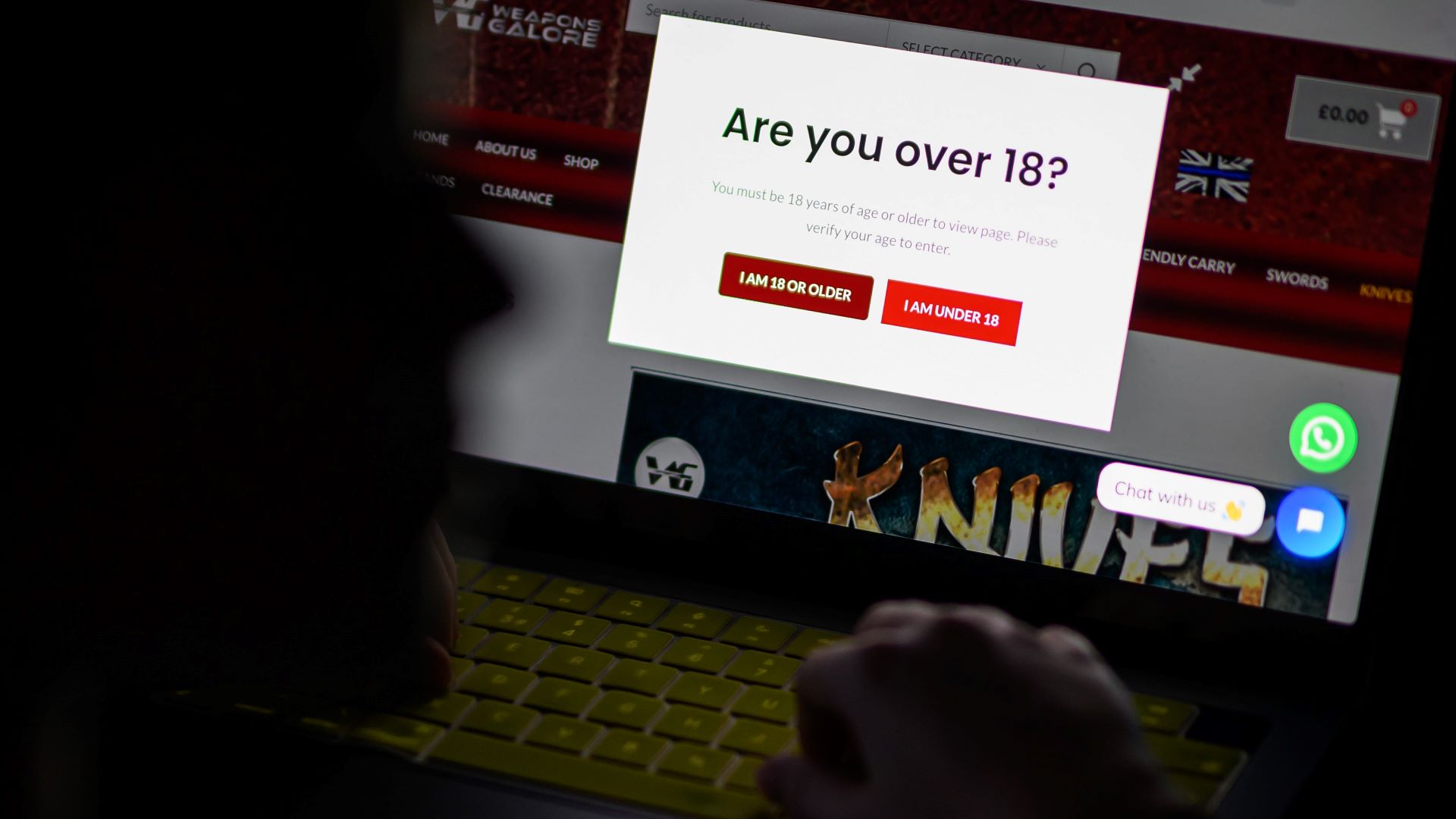Age verification requirements have landed in the UK – how the internet will change, and what about your privacy?
You may be able to use a VPN instead, but Ofcom strongly suggests against it

Millions of people in the UK are now required to show proof of age when surfing the internet.
Since July 25, all sites and apps that display adult content must ensure their users are over 18 via robust age-verification checks. This includes several gaming, social media, and dating apps.
The changes are due to the latest legislation from the Online Safety Act, which is designed to shield minors from harmful content.
Since coming into force, it's received widespread backlash. Over 450,000 people have signed a petition to repeal the act, citing privacy concerns about the implementation of the age verification checks, though as yet the government is showing no sign of backing down.
The onus of the legislation is on the platforms to enforce the checks. It's currently legal for users to bypass the checks using a VPN, and downloads of the best VPNs and best free VPNs have exploded since Friday, as people look to find ways to protect their data. Here's everything you need to know.
What are UK age checks requirements?

As Ofcom explains on its website, "From July 25, stronger checks will be needed and crucially, just ticking a box to say you're over 18 will no longer be enough."
Websites offering adult-only content are not the only ones required to enforce the new age requirements, though.
"We expect the riskiest services to use strong age checks to protect children from suicide, self-harm, and eating disorder content and other types of harmful content, while preserving adults’ rights to access legal content," said the UK regulator.
The likes of Reddit, Bluesky, X, and Grindr have already introduced age verification for users in the UK, with more services expected to follow suit.
These platforms can either handle these checks themselves or get support from a third-party company.
Methods being used include facial age estimation, bank or credit card age checks, ID wallets, mobile network operator age checks, photo-ID matching, and email-based age estimation.
What about privacy?
Some digital rights experts and other privacy-conscious commentators have been raising concerns about how new age verification requirements could negatively impact people's privacy.
That's mostly because, as a policy researcher at Stanford University, Riana Pfefferkorn, told Wired: "Age verification impedes people’s ability to anonymously access information online."
Furthermore, as we have seen, this isn't only impacting Brits looking to access adult-content sites. The UK's new age requirements are set to change how people in the UK will interact with their social media accounts, among others.
Talking to TechRadar in November 2024, privacy experts criticized the idea of scrapping social media anonymity, warning that this may lead to higher surveillance, censorship, and data breaches.
That said, Ofcom assures that the team is working closely with the Information Commissioner’s Office (ICO) to ensure age checks respect data protection laws.
Can I use a VPN?
If you have concerns over sharing your data online, you can use a VPN to keep your data secure.
You'll find some reliable options in our best free VPN guide. However, free VPNs sometimes lack important security features, so for a more robust option, take a look at our best VPN guide. Our top recommendation is NordVPN.
A virtual private network (VPN) encrypts all your internet connections while spoofing your real IP address.
In the latter skill lies the workaround to bypass the new UK age requirements. All that's supposedly needed is to pick a server in a country where these identity checks aren't in place and browse the web as usual.
Considering the spike in interest in VPNs across the UK starting from July 25, many Britons are likely to be getting ready to bypass these checks with such software.
Ofcom is, nonetheless, strongly suggesting against their use. Talking to the BBC, the regulator said that it will be illegal for platforms to encourage the use of VPNs.
Ofcom is also reminding parents that if their children use a VPN to bypass age checks, they "would not be able to benefit from the protections of the Online Safety Act," the BBC reported.
It also remains to be seen how each platform ultimately decides to enforce age control requirements, as VPNs may not always be a viable choice.
As a digital rights expert at the Electronic Frontier Foundation (EFF) explained when talking about the privacy risks of US age verification laws, your IP address isn't the only method online services use to track down your location. Providers may also use GPS tracking, web cookies, mobile ad IDs, tracking pixels, or device fingerprinting, making the use of VPNs way less effective.
You might also like

Chiara is a multimedia journalist committed to covering stories to help promote the rights and denounce the abuses of the digital side of life – wherever cybersecurity, markets, and politics tangle up. She believes an open, uncensored, and private internet is a basic human need and wants to use her knowledge of VPNs to help readers take back control. She writes news, interviews, and analysis on data privacy, online censorship, digital rights, tech policies, and security software, with a special focus on VPNs, for TechRadar and TechRadar Pro. Got a story, tip-off, or something tech-interesting to say? Reach out to chiara.castro@futurenet.com
You must confirm your public display name before commenting
Please logout and then login again, you will then be prompted to enter your display name.